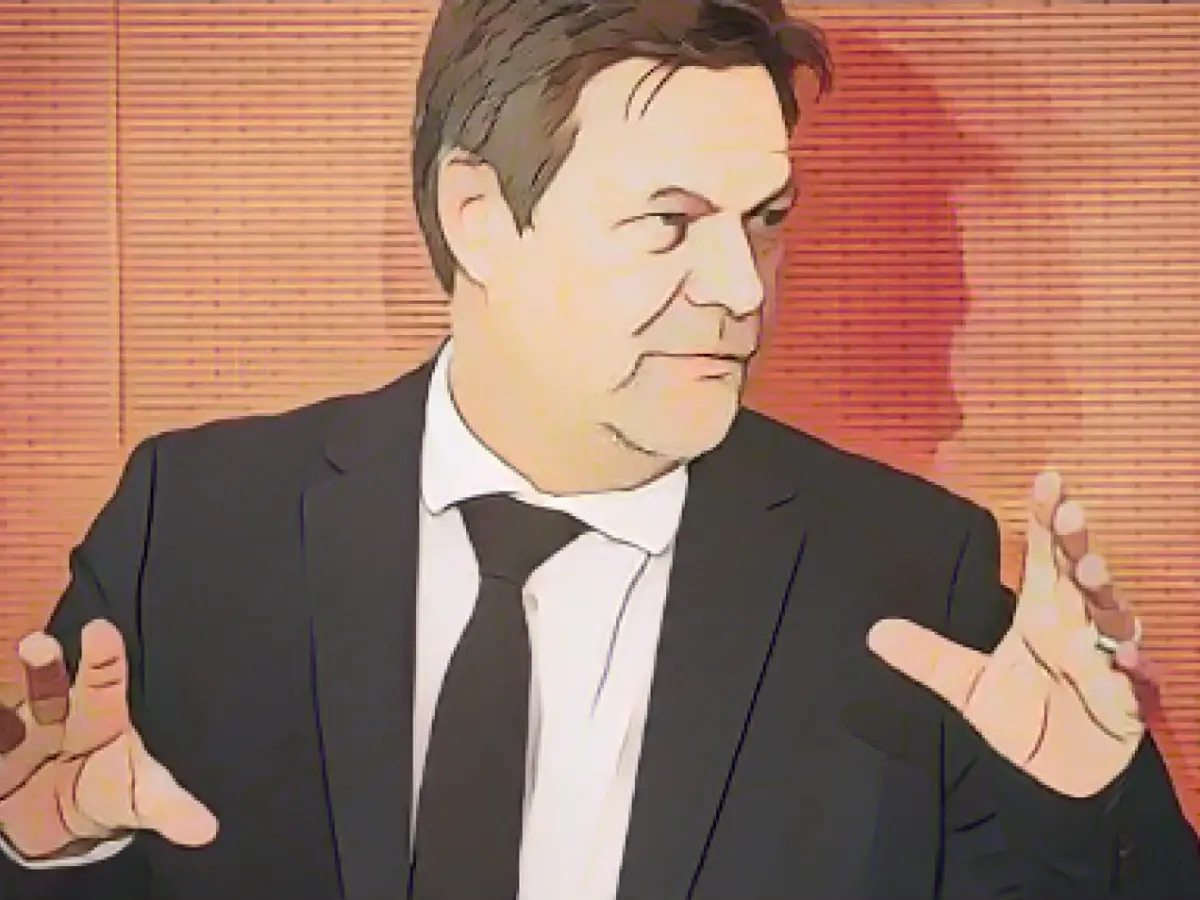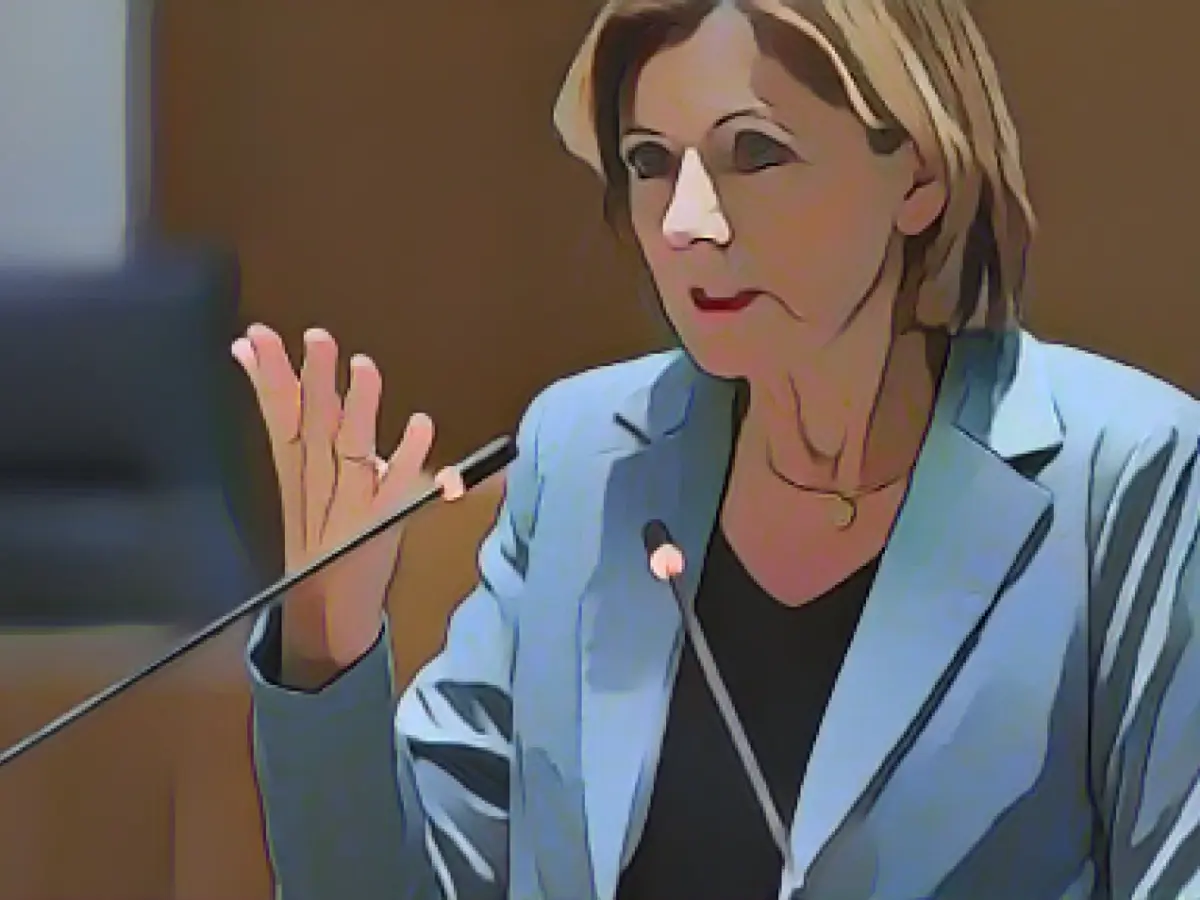Budget Repair and Debt Brake Adjustment in the Bundestag
The Bundestag recently took decisive action to stabilize the current year's budget and advance a crucial part of the Red-Green-Yellow coalition's 2024 budget plans. In a major vote, the Bundestag passed a supplementary budget for the current year. This move securely puts the 2023 budget on solid legal footing, following the Karlsruhe budget ruling.
Amarathon session saw the debt brake for the 2023 financial year temporarily suspended by a clear majority vote in the Bundestag. This act provided the legal basis for the supplementary budget, also up for approval on the same day.
Securing Energy Price Brake Loans and Flood Aid
The 2023 supplementary budget will retroactively provide legal backing for loans issued for energy price brakes and flood aid after the devastating Ahr valley flooding. The associated funding, totaling approximately 45 billion euros, has already been dispersed. However, the Constitutional Court judgment has made it clear that taking out these loans without further due diligence was an oversight.
The majority of these loans were approved during the 2021 and 2022 suspension of the debt brake due to the coronavirus crisis and the conflict in Ukraine. The Red-Green-Yellow coalition had planned to utilize the funds in 2023 and 2024. However, the judges in Karlsruhe ruled that emergency loans cannot be set aside for later years. Without this supplementary budget, the 2023 budget might have exceeded constitutional limits.
Green budget holder Sven-Christian Kindler defended the procedures amid criticism from opposition parties like the CDU/CSU. He voiced his support for stabilizing the energy and gas price brakes and securing the Ahr valley flood aid.
Fourth Straight Year Without Debt Brake
The planned new debt now stands at 70.61 billion euros, which is 44.8 billion euros over the statutory borrowing limit. This marks the fourth consecutive year the debt brake has been suspended.
Article 115 of the Basic Law allows for extraordinary loans in extraordinary situations. These include emergencies that are beyond the state's control and significantly impact its financial position. The Red-Green-Yellow coalition argues that the far-reaching humanitarian, social, and economic consequences of the war in Ukraine have negatively affected the federal government's financial situation.
Controversial Debt Brake Provision
The debt brake enshrined in the Basic Law has been criticized for restricting the federal government's borrowing power. Reforms urged by the SPD and Greens require the support of a two-thirds majority in both the Bundestag and the Bundesrat; however, opposition from the FDP and large sections of the CDU/CSU makes this goal challenging.
Call for Debt Brake Commission
Baden-Württemberg's Finance Minister Daniel Bayaz (Green Party) and Berlin's Senator for Finance Stefan Evers (CDU) have proposed the establishment of a debt brake reform commission. This body would include representatives from the federal and state governments, academia, and other relevant stakeholders. The aim is to further develop the debt brake in light of transformation challenges.
Criticism of Supplementary Budget and Agreement
CDU/CSU spokesperson Mathias Middelberg raised concerns about the constitutional legality of the supplementary budget, arguing that it used an incorrect accounting system in parts of the budget. Additionally, the Federal Audit Office considers some aspects of the supplementary budget unconstitutional.
Middelberg also criticized the agreement reached by the Red-Green-Yellow coalition for the 2024 financial year as insufficient. He labeled it a rescue package for the coalition and called for the implementation of the climate compensation measures outlined in the coalition agreement.
New Investment Rule Proposal
Evers and Bayaz, from Baden-Württemberg and Berlin, respectively, have suggested integrating an investment rule within the debt brake framework. This rule would enable financing for targeted investments aimed at addressing transformation challenges. However, they stress the importance of drafting the concept carefully to prevent non-targeted expenditure.
Federal States Seek Debt Brake Reform Initiative
The Bundesrat, Germany's Federal Council, is considering launching a debt brake reform initiative to address the debates surrounding fiscal policies and the debt brake rule.
[1]
[2]
[3]
[4]
[5]








